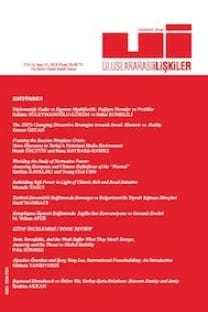Mülteci Sorunu ve 1951 Mültecilerin Hukuki Durumuna İlişkin Sözleşme: Siyasi Gerçeklik ve Normatif Düzen İkilemi
İnsanlık, 2. Dünya Savaşı’ndan bu yana yaşanan en ciddi mülteci sorunu ile karşı karşıyadır. Sorunun ciddiyetine karşın devletlerin mülteci sorununa ilişkin politikaları, 1951 Sözleşmesi’nde amaçlandığının aksine mültecilerin korunması ve sorumluluk paylaşımı mekanizmasından oldukça uzaktır. Sadece 5 ülke tek başına dünyadaki mültecilerin %33’üne ev sahipliği yapmakta, her 10 mülteciden 9’u gelişmekte olan devletlerde bulunmakta ve mültecilerin %1’i dahi üçüncü bir ülkeye yerleştirme ve yerel bütünleşme kalıcı çözümlerine erişememektedir. Mevcut literatür genel olarak bu krizin nedenlerine odaklanırken; bu çalışma uluslararası bir rejimin ve bağlayıcı bir sözleşmenin kurduğu normatif bir düzenin varlığına rağmen, taraf devletlerin mülteci sorununa yönelik politikalarını nasıl hâlâ kendi davranışlarına, isteklerine ve çıkarlarına göre şekillendirebildiklerini sorgulamaktadır. Çalışma; bu soruyu 1951 Sözleşmesi’ni mülteci tanımı, uluslararası koruma ve sorumluluk paylaşımı açısından inceleyerek cevaplamaya çalışmaktadır. Çalışmaya göre Sözleşme, muğlâk ve göreceli ifadelere sahip yapısı ile taraf devletlere mülteci sorunuyla ilgili politikalarını siyasi gerçekliklere göre şekillendirebilme imkânı sunarak günümüzde yaşanan krize olanak tanımaktadır.
Refugee Problem and the 1951 Convention Relating to the Status of Refugees: The Dichotomy Between Political Realism and Normative Order
The humanity experiences the most serious refugee problem since the Second World War. Despite the nature of the problem, states’ policies on refugee problem are far away from protecting refugees and from providing responsibility sharing mechanism, being contrary to the aims of 1951 Convention. 5 states alone host 83% of the world’s refugees, 9 out of 10 refugees are in developing states and not even 1% of the refugees could have access to durable solutions such as third country resettlement and local integration. While existing literature mainly focuses on the reasons of this crisis, this study questions how state parties can still shape their policies on refugee problem according to their behaviors, will and interests despite the existence of an international regime and a binding agreement. The study seeks to answer this question by examining 1951 Convention in terms of refugee definition, international protection and responsibility sharing. The study argues that the Convention with its structure of vague and relative statements facilitates current crisis by enabling states to shape their policies on refugee problem according to political realities.
